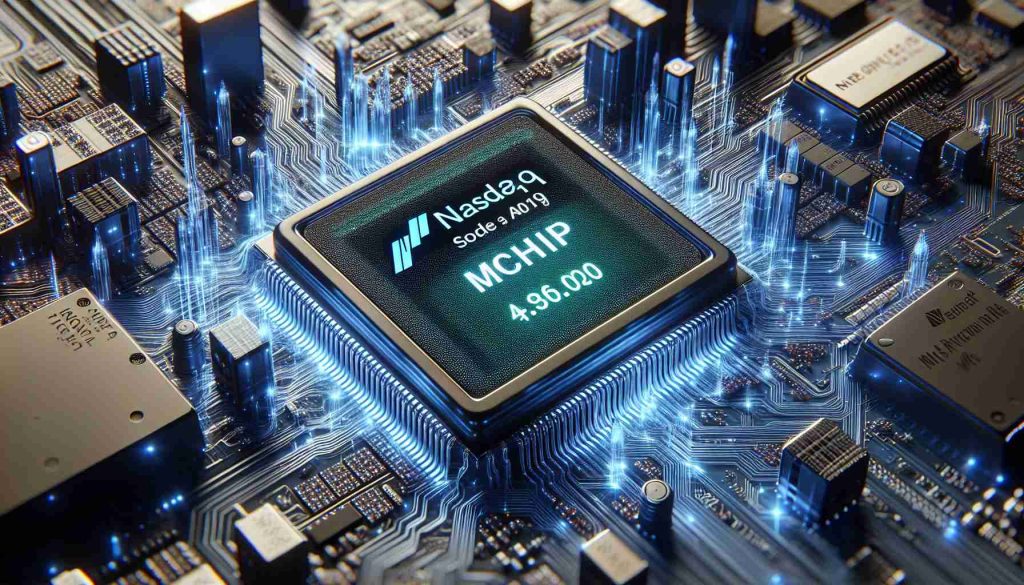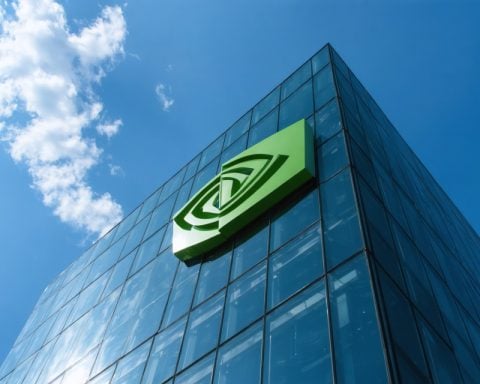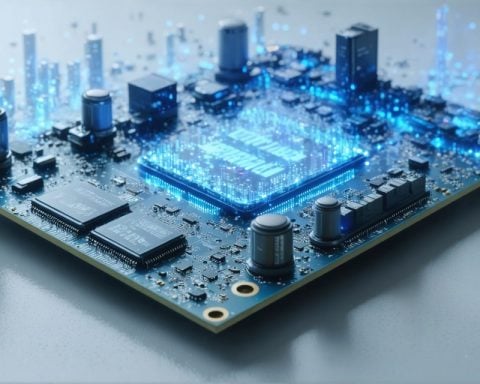Big tech is on a relentless pursuit to dominate the burgeoning field of artificial intelligence (AI). Among the frontrunners in this tech megatrend are Dell Technologies (NYSE:DELL) and Nvidia Corporation (NASDAQ:NVDA), each with unique strengths and market strategies.
Nvidia has cemented its status as a titan in the AI hardware sector. With a staggering market cap of US$3.35 trillion, Nvidia leads the industry by supplying advanced graphics processing units (GPUs) that are pivotal for training sophisticated AI models like ChatGPT. These GPUs, designed for deep learning, have positioned Nvidia as a clear leader with an impressive market share exceeding 80%. The company’s integrated software solutions, such as Nvidia AI Enterprise, further enhance its technology offering, enabling businesses to seamlessly deploy AI applications.
Meanwhile, Dell is making significant inroads in the AI infrastructure space. The tech giant has launched the Dell AI Factory, an initiative that simplifies AI adoption for enterprises. In collaboration with Nvidia, Dell is expanding its AI capabilities, providing essential tools for model training and deployment. The demand for Dell’s AI servers has surged, benefiting from regulatory challenges faced by competitors like Super Micro Computer.
In terms of stock performance, Nvidia has experienced a meteoric rise, with a 2,000% increase over the past five years. Dell has also shown robust growth, outperforming market averages with a 450% rise since late 2019. Analysts anticipate continued expansion for both giants, with Nvidia predicted to significantly boost its sales and earnings by 2026. Dell, while trading at a lower multiple compared to Nvidia, is also projected to grow its earnings swiftly in the coming years.
Ultimately, both Dell and Nvidia are key contributors to the AI market’s evolution, each with promising growth trajectories. As investors weigh their options, both stocks present compelling opportunities to capitalize on the AI boom.
How AI Developments are Reshaping Global Economies and Workforces
In the dynamic world of artificial intelligence, the influence of tech giants like Dell and Nvidia is undeniable. However, the rapid advancements in AI technologies are also bringing profound changes to our everyday lives, economies, and how communities function globally. Beyond the market strategies and corporate growth statistics, let’s delve into some of the untold impacts and controversies surrounding the AI tsunami shaping our present and future.
Impact on Employment: Automation and Job Displacement
One of the hottest debates around AI is its impact on jobs. As AI systems become more sophisticated, they are increasingly capable of automating tasks that were previously thought to require human intuition and intelligence. While this is boosting productivity, it raises the question: Are we prepared for the potential displacement of workers across various sectors?
For instance, AI-driven automation is expected to revolutionize industries like manufacturing, logistics, and even service industries. While companies can significantly reduce costs and improve efficiency, workers might find themselves needing to adapt quickly through reskilling and upskilling.
Economic Inequality and Access to AI
Another less-discussed consequence of the AI boom is the potential increase in economic inequality. Countries and communities that harness AI technologies effectively could see tremendous economic growth. However, those that lag might find themselves falling behind, exacerbating existing inequalities both within and between nations.
This raises significant questions about global readiness and ensuring fair access to AI technologies. How can developing nations secure the infrastructure and education needed to compete in an AI-driven world?
Exciting Innovations and Benefits
Despite these challenges, the benefits AI brings are groundbreaking. From healthcare to climate change, AI is enabling novel solutions. AI models can analyze vast datasets to accelerate drug discovery or predict weather patterns with astounding accuracy, potentially saving lives and mitigating climate impacts.
Communities are already seeing improvements in areas such as personalized education options powered by AI, which cater to individual learning styles and paces, improving educational outcomes.
Ethical Concerns and Controversies
AI ethics is another crucial topic. As these technologies are integrated into decision-making processes, questions about bias, transparency, and accountability abound. Are we developing AI systems that reinforce existing biases, or can they be designed to foster equity?
Furthermore, the massive data requirements for training AI models raise privacy concerns. How can we protect individual data rights in an age of algorithmic decision-making?
Advantages and Disadvantages
In summary, the rapid deployment of AI technologies offers numerous advantages:
– Increased productivity and efficiency across various sectors.
– Enhanced solutions in healthcare, education, and environmental management.
– Economic growth for pioneering regions.
However, these advancements come with significant disadvantages:
– Potential job displacement leading to workforce disruption.
– Increased economic inequality between those who can deploy AI technologies and those who cannot.
– Ethical and privacy challenges associated with AI use and data management.
As we navigate this AI-driven landscape, it is crucial that policies and education systems evolve to meet these emerging challenges. Encouragingly, ongoing discussions on these fronts are showing promise in pushing for responsible AI development.
For more insights into the evolving AI sector and its broader impact, you can explore the following resources:
Visit Nvidia
Dell Technologies























